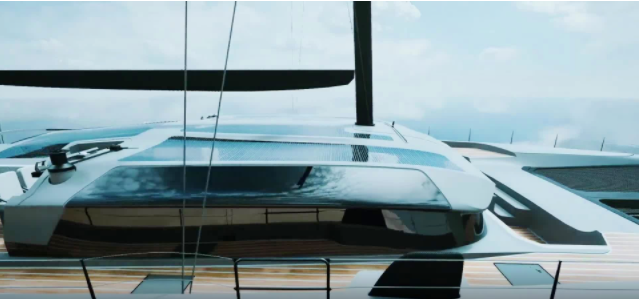Germany has completed the acceptance trials of the fully electric seagoing ferry, the E-Kat. The ferry was designed and built by Dutch shipbuilder Damen Shipyards for the German shipping company AG Reederei Norden-Frisia.
The E-Kat was launched on June 29, 2024, in Gorinchem, the Netherlands. After some delays, the acceptance trials were completed on January 15, 2025.
These trials confirmed that the necessary permits, insurance, and official approvals are in place. The vessel is now ready to transfer to its homeport in Norddeich, located on the North Sea, as soon as weather conditions allow.
The ferry is built from aluminium, making it lightweight yet durable. It is 32.3 meters long, 9.6 meters wide, and can carry up to 150 passengers.
The ferry has a payload capacity of 11,250 kilograms and is powered by two electric motors, each with a capacity of 600 kW. It also features two 75 kW electric bow thrusters for enhanced manoeuvrability.
The E-Kat can travel at speeds of up to 19 knots, with a planned operational speed of 16 knots. This allows it to reduce the travel time between Norddeich and Norderney, one of the East Frisian Islands, to just 30 minutes, a great improvement compared to traditional ferries.
The vessel’s power comes from the Octopus High Energy battery system, developed by Dutch company EST-Floattech. The battery system has a maximum capacity of 1,800 kW and has already undergone successful full-power charging tests at the pier.
Once docked in Norddeich, the ferry can be fully recharged in approximately 28 minutes, providing enough energy for a round trip to Norderney, which is about 11 kilometres (7 miles) away.
AG Reederei Norden-Frisia has integrated the E-Kat into a broader sustainability initiative. The company has installed photovoltaic systems on its buildings in both Norddeich and Norderney.
These systems generate renewable energy to power the ferry and other operations. Additionally, charging stations for electric vehicles have been set up at the company’s parking spaces.
“Our long-term goal is to create a closed cycle of electricity production and consumption,” said Cal-Ulfert Stegmann, a board member of the company.
The E-Kat is expected to start regular operations as planned with the infrastructure for charging largely completed. During the high season, the ferry will make up to eight trips per day between Norddeich and Norderney.


